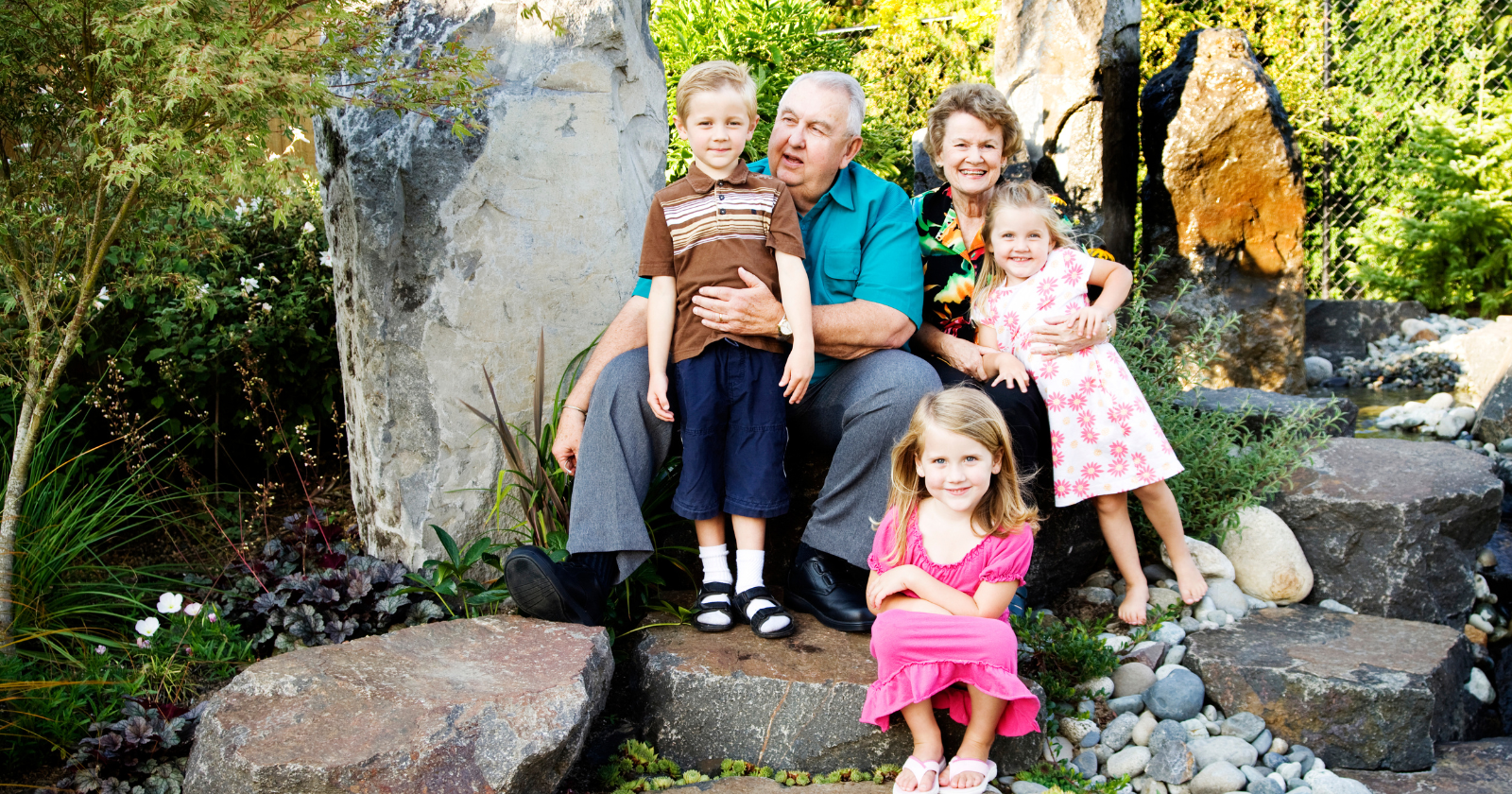There’s something incredible about grandparenthood.
You’ve been through the early parenting years—the sleepless nights, the endless snack requests, the worry—and now you get to enjoy the sweetness without the daily grind. You get to play.
But if you’re being honest, connecting with your grandkids might not feel as natural as you’d hoped.
Maybe you’re close with your adult children but not quite sure how to bridge that generational gap with the little ones.
I get it. I’ve watched this play out in my own family and in countless others. Sometimes, it’s not about what grandparents do—it’s about what they can learn to stop doing.
Here are seven common habits that might be quietly blocking that deeper connection you’re hoping for.
1) Comparing your grandkids to other kids
It’s so easy to fall into this one.
“She’s not as talkative as your cousin was at that age.”
“Your brother was already walking by now.”
Even when those comments come from love or pride, kids (and parents) hear something else: not enough.
Children develop at wildly different speeds. What they need most from grandparents isn’t comparison—it’s celebration.
Related Stories from The Artful Parent
Cheer for who they are right now. The shy one who observes before jumping in. The loud one who tells never-ending stories. The cautious one who takes time to warm up.
Dr. Tovah Klein, director of the Barnard College Center for Toddler Development, puts it perfectly: “Children flourish when they feel seen for who they are, not who we want them to be.”
If your goal is closeness, start there. Notice them. Reflect back their strengths. Stop the comparison game. Leave the comparisons behind.
2) Offering too much advice to your adult kids
This one can be tricky, especially when you’ve raised kids yourself.
You know what works. You’ve lived through tantrums, picky eating, teenage mood swings—you’ve earned that wisdom.
But today’s parents are navigating a different world. Sleep schedules, screen time, school options—everything feels more complex (and more judged).
- 7 situations in life where you should never be too nice, according to psychology - Global English Editing
- 8 reasons aging brings more peace, clarity, and self-trust than your younger years ever did - Global English Editing
- Psychology says people who always check prices before ordering at restaurants possess these 8 traits shaped by childhood experiences - Global English Editing
Giving unsolicited advice, even with the best intentions, can feel like criticism.
Instead of saying, “You shouldn’t let them nap that late,” try, “How’s nap time going these days?” That small shift invites conversation rather than shutting it down.
As family therapist Dr. Becky Kennedy notes in her book Good Inside, “Connection starts when we lead with curiosity, not correction.”
Your adult kids already respect your experience. What deepens the bond is showing that you respect theirs too.
3) Using gifts as the main way to connect
Presents are lovely—but presence matters more.
Buying toys or handing out cash might feel like love (and kids do light up at gifts!), but over time, those moments fade.
What lasts is shared experience.
Read together. Bake together. Let them “help” in the garden or stir pancake batter.
Create rituals that only you two share—a special song, a silly handshake, a walk after dinner.
Those are the things they’ll remember when they’re grown.
My daughter Elise still talks about how her grandmother used to play “I Spy” in the grocery store aisles with her. No screens, no gifts—just attention and laughter.
It’s tempting to compensate for distance or time apart with “stuff,” but what really builds the bond is your time, your eye contact, and your patience.
4) Dismissing their parents’ rules

This is a big one—and it’s often unintentional.
Let’s say your grandchild’s parents limit sugar or screen time. You might think, “One cookie won’t hurt,” or “We’re just watching a quick movie.”
But here’s the thing: when you break those boundaries, you’re not just bending a rule—you’re breaking trust.
Your adult kids feel undermined, and your grandkids learn that rules are flexible depending on the house.
And that creates friction on both sides.
You don’t have to agree with every rule, but honoring them shows respect—and kids notice that teamwork.
It also makes their parents more relaxed about future visits, which means more time together.
If you’re unsure about something, just ask. A simple “Hey, are movies okay before dinner?” goes a long way.
As I often tell friends, grandparents have a secret superpower: they get to be the safe, steady constants kids run to—not the ones who confuse them.
5) Talking more than listening
Kids—especially little ones—want to be heard. They might ramble about dinosaurs, Minecraft, or some imaginary world you don’t fully understand.
But if you lean in, nod, and respond with genuine curiosity, they’ll feel seen.
Too often, grandparents fill the space with stories or lessons instead of listening.
I get why—it comes from wanting to teach, to guide, to pass something down. But sometimes the most powerful thing you can say is nothing at all.
Let them lead the conversation. Ask questions like, “What was your favorite part of today?” or “What made you laugh the most?”
As psychologist Carl Rogers famously said, “When someone really hears you without passing judgment… it feels damn good.” Kids feel that too.
Active listening shows you value them as people, not just as “the grandkids.”
6) Expecting them to connect on your terms
Maybe you picture cozy storytelling or family dinners, but your grandkids prefer building forts or showing you dance moves from YouTube.
That’s okay. Connection doesn’t always look like what we imagined.
Try stepping into their world. Let them teach you a game. Ask them to show you how to use an app. Kids love being the expert for once—it flips the dynamic in the best possible way.
When my daughter Elise first got into board games, my mom didn’t know the rules at all.
But she learned, laughed through her mistakes, and pretty soon they had a weekly “game day.” It’s now one of their strongest rituals.
Relationships thrive when both sides feel like equals. The more flexible you are in how connection happens, the stronger that bridge becomes.
7) Holding onto old grudges with your adult children
And finally—the hardest one.
It’s nearly impossible to build a strong relationship with your grandkids if there’s tension simmering between you and their parents.
Old wounds from decades ago—things said in frustration, parenting disagreements, unresolved hurt—can quietly bleed into the next generation.
Kids pick up on emotional distance faster than we think. Even if you’re warm with them directly, they sense when their parents feel guarded or tense.
Repairing that doesn’t mean pretending everything’s fine. It means doing the slow, quiet work of rebuilding trust. That might sound like:
“I realize I’ve been critical in the past. I’m trying to do better.”
or
“I love seeing you as a parent, and I want to support you however I can.”
A moment like that can shift everything.
The Gottman Institute, which studies family and relationship dynamics, notes that repair attempts are one of the strongest predictors of lasting connection.
The same holds true for families, not just couples.
Letting go of old grudges doesn’t erase the past—it opens the door to something better.
Final thoughts
Grandparenting isn’t about perfection—it’s about presence.
You’ve already done the hard years of raising kids. This chapter is about showing up with warmth, flexibility, and humility.
If you catch yourself in any of these habits, don’t beat yourself up. Awareness is the first step toward change.
Each small shift—listening more, judging less, staying curious—builds the foundation for a deeper, more joyful bond.
Because at the end of the day, your grandkids don’t need you to be perfect.
They just need you to be there—loving, patient, and fully present for the moments that make their childhoods unforgettable.



